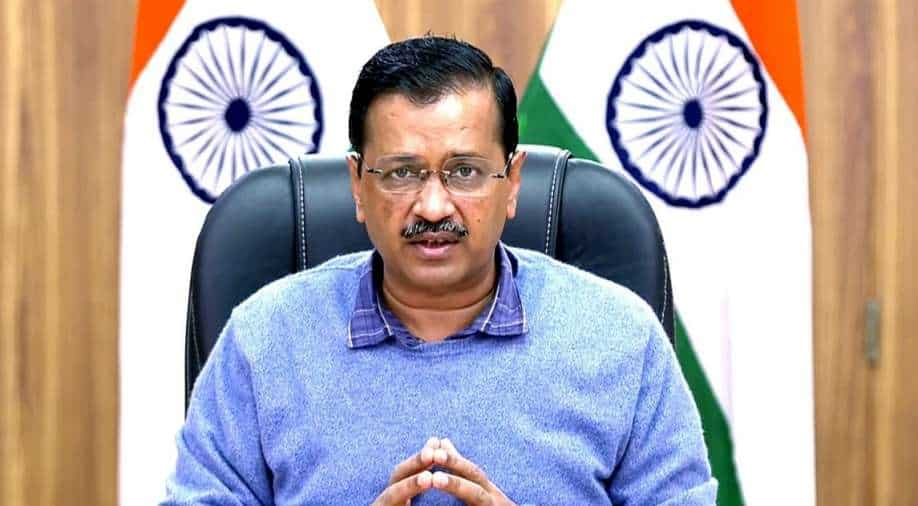
Introduction: Unveiling the Controversy
In a recent turn of events, the Government of National Capital Territory of Delhi (Amendment) Bill, 2023, commonly known as the Delhi Services Bill, has ignited a fierce debate. This bill, passed in the Rajya Sabha on August 7, has captured the nation’s attention with its implications for governance and statehood. It is likely to up the ante for for BJP and the opposition block and take the faceoff to a whole new level with Delhi CM Arvind Kejriwal levelling serious charges against the Prime Minister.
A Close Vote: The Passage of the Bill
The Delhi Services Bill was passed in the Rajya Sabha with 131 votes in favor and 101 votes against it. This division highlights the thin line lawmakers had to walk choosing sides about the bill and its grave impact on the political landscape of the region can hardly be undermined.
Background: A Clash Between Arvind Kejriwal and the Centre
The bill has been at the center of a tug-of-war between the Aam Aadmi Party (AAP) chief Arvind Kejriwal and the Central Government. It was initially passed in the Lok Sabha on August 3, underlining the significance of this proposed change in governance.
The Bill’s Genesis: Replacing an Ordinance
Union Home Minister Amit Shah introduced the bill in the Upper House as a replacement for an ordinance. This ordinance aimed to address the transfers and postings of officials within the Delhi government. The bill’s introduction signified the government’s commitment to implementing long-term changes.
Kejriwal’s Accusations: A “Black Day” for Democracy
In response to the bill’s passage, Delhi Chief Minister Arvind Kejriwal accused the BJP of betraying the people of Delhi. Kejriwal pointed out that Prime Minister Narendra Modi had previously promised statehood for Delhi in a pre-poll speech in 2014. He characterized the bill as an attempt to undermine governance through the “chor darwaza” (backdoor).
Promises and Betrayals: Kejriwal’s Discontent
Kejriwal reminded the Prime Minister of his 2014 election promise to grant Delhi full statehood. He lamented that the BJP had previously advocated for statehood but was now attempting to take control of Delhi indirectly through the bill. Kejriwal vowed that the people of Delhi would not grant the BJP any Lok Sabha seats in the upcoming 2024 elections.
Enslaving Democracy: Kejriwal’s Concerns
Drawing parallels to historical events, Kejriwal compared the bill’s implications to the Government of India Act enacted by the British in 1935. He expressed concern that the bill would lead to the enslavement of Delhi’s citizens by concentrating power in the hands of the Centre.
Modi’s Arrogance: Kejriwal’s Critique
Kejriwal criticized Modi for his perceived arrogance, alleging that Modi was disregarding the opinions of Delhi’s citizens and the Supreme Court. Kejriwal implored Modi to refrain from interfering in Delhi’s affairs and questioned whether it was the Prime Minister’s role to decide the responsibilities of government employees.
An Ordinance Defined: Understanding the Basics
To grasp the significance of the bill, it’s essential to comprehend the concept of an ordinance. Ordinances are laws issued by the President when Parliament is not in session. They are reserved for urgent situations where immediate action is required.
Legislative Power: President’s Authority
Under Article 123 of the Indian Constitution, the President has the authority to issue ordinances. This power is considered an emergency measure, utilized only to address pressing issues. Ordinances are advised by the Council of Ministers, emphasizing the government’s role in their issuance.
The Ordinance vs. Bill Dilemma: Key Differences
The bill’s passage raises the question of how ordinances differ from bills and how they become law. Ordinances are temporary legislative measures, while bills undergo a more thorough process to become permanent laws.
Parliament’s Sessions: A Timeline for Lawmaking
Parliament convenes for three sessions: the Budget session, the monsoon session, and the winter session. These sessions play a pivotal role in lawmaking and ensure that there is no prolonged gap between legislative activities.
Ordinance’s Emergent Nature: Purpose and Scope
Ordinances are specifically intended for emergent situations that demand immediate action. This is in contrast to the standard legislative process, which involves more comprehensive deliberation.
The President’s Role: Executing the Ordinance
The President acts upon the advice of the Council of Ministers when issuing an ordinance. This underscores the collaborative nature of the process and the government’s responsibility in decision-making.
Conclusion: Navigating Delhi’s Governance Landscape
The passage of the Government of NCT of Delhi (Amendment) Bill, 2023, has ignited a fiery debate about governance, democracy, and statehood. As Delhi Chief Minister Arvind Kejriwal and the Centre continue to clash over the implications of this bill, it’s clear that the stakes are high for both parties and the citizens of Delhi.
FAQs about the Delhi Services Bill
- What is the Delhi Services Bill? The Delhi Services Bill, officially known as the Government of NCT of Delhi (Amendment) Bill, 2023, aims to address the transfers and postings of officials in the Delhi government.
- Why is the bill controversial? The bill has caused controversy due to its perceived implications for governance, statehood, and power dynamics between the Central Government and the Delhi administration.
- What were Kejriwal’s accusations against the BJP? Arvind Kejriwal accused the BJP of betraying the people of Delhi by attempting to govern indirectly through the bill.
- How did Kejriwal compare the bill to historical events? Kejriwal drew parallels between the bill and the Government of India Act enacted by the British in 1935, expressing concern for the potential impact on Delhi’s democracy.
- What is an ordinance? An ordinance is a temporary law issued by the President when Parliament is not in session, designed to address urgent situations.
- Who has the authority to issue ordinances? Under Article 123 of the Indian Constitution, the President has the authority to issue ordinances.
- What role does Parliament’s session play in lawmaking? Parliament’s sessions, including the Budget, monsoon, and winter sessions, provide a timeline for lawmaking activities to ensure continuous legislative activity.







